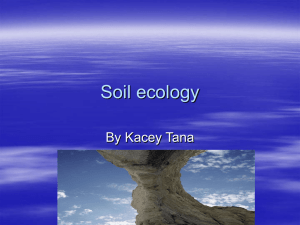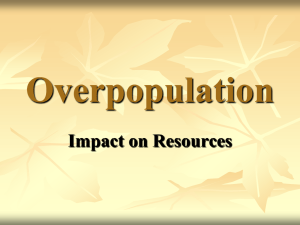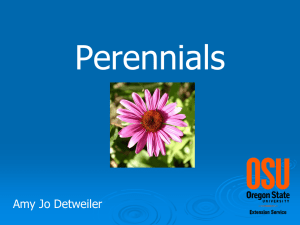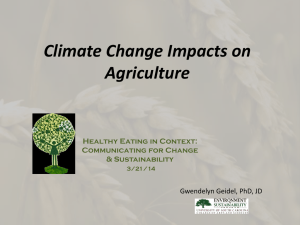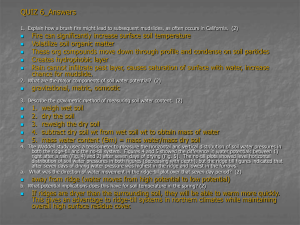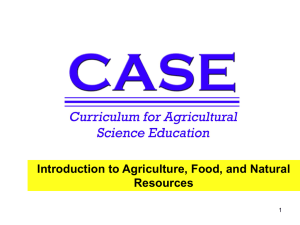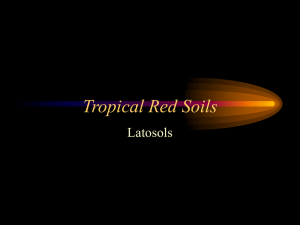Future of Soil Science in SSA
advertisement
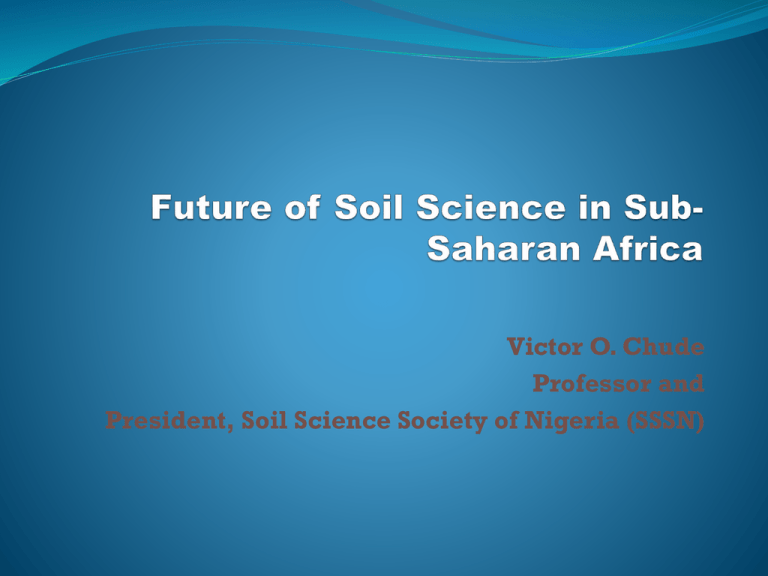
Victor O. Chude Professor and President, Soil Science Society of Nigeria (SSSN) Soil Science in Africa As a discipline, Soil Science is relatively young in most African countries In most Universities (particularly, in Nigeria), Soil Science has been subsumed in either the Department of Agronomy or those of Crop / Plant Science. Soil Science is not recognized as a profession in most countries of Africa ( Job opportunities are compromised) Low enrolment of graduate students in soil science as a core course in tertiary institutions of learning. • Soil Science has been demerged from the Departments of Agronomy and Crop /Plant Science in most Universities of Africa (making some level of soil science based research possible). • Appropriate and optimum nutrient requirements for all crops across agro-ecologies in most countries of Africa. • Diagnostic soil maps of most agricultural soils at various scales available with digital soil maps under way. • Tested and proven soil and water conservation practices for dry lands available and in use by farmers. Current efforts • Creating awareness through soil care extension advocacy to policy makers and other stakeholders. • Development of commercial rhizobium strains from natural pools. • Promotion of interdisciplinary approach to addressing soil based research. • Increased contribution to international initiatives • Increased visibility and use of soil based research results is being promoted through the push for soil researchExtension linkages. • Soil Science beyond the agriculture confines: with increasing environmental challenges in Africa, a paradigm shift beyond the agronomy paradigm to environmental sciences is envisaged (soil ecology, soil economics and archaeology). • Beyond the traditional Soil Science education curriculum: a review of the focus of the discipline which has been ag. based to include management of mine soils, archeological sites, forensic soil science, soils and human health etc. basic mathematics and physics based analytical tools incorporated. • Soil improvement research will emphasize more on biological processes to address major soil quality based challenges (nutrient cycling optimization, soil biological activity enhancement etc). Strong country based soil advocacy: development of strong friendship link through advocacy between soil experts, policy makers and managers and, legislative structures at all level of governance. • The Future of soil Science: can we fast track it? Yes. • Through strong and active international collaborations. • Capacity building programme for future soil scientists and managers of soils (through exchange programs for graduate students, faculty and professionals). • Through national and international funding to support joint soil based R & D projects in Africa

